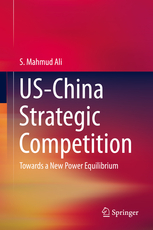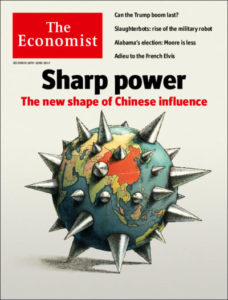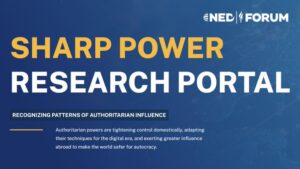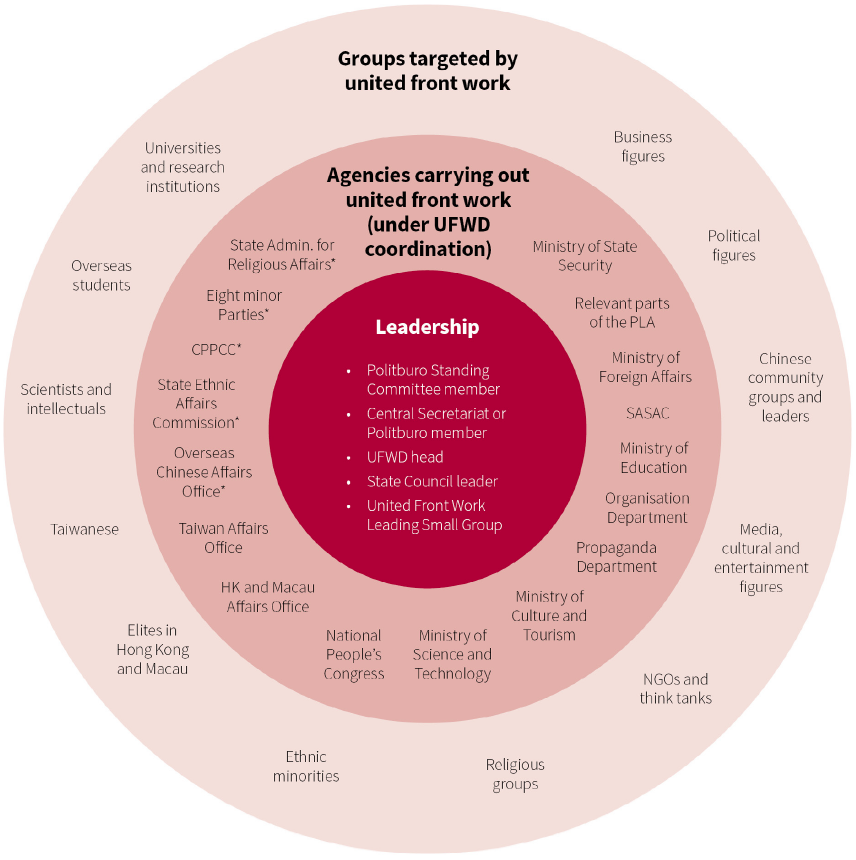NEW: CSIS experts dive into China’s political warfare campaign, including intel ops, cyber ops, information & disinformation ops, united front activity, irregular military actions, and economic coercion, in our most comprehensive analysis to date (1/13).https://t.co/Hl4WuuSOT6
— CSIS (@CSIS) August 2, 2023
The United States and its partners should counter Chinese political warfare by leveraging democratic principles and combating authoritarianism across the globe and on all forums, from digital platforms and the internet to corporate boardrooms, educational institutions, and the halls of government, says a new analysis from the Center for Strategic and International Studies.
The authoritarianism and illiberalism at the root of China’s political and economic system
are antithetical to Western Enlightenment values. Competition is, to a great extent, a struggle over ideologies and systems. Much is at stake, including the shape, make-up, and power of political norms, the international trading system, multilateral security organizations, and international institutions, according to Seth G. Jones, Emily Harding, Catrina Doxsee, Jake Harrington and Riley McCabe, the authors of Competing without Fighting: China’s Strategy of Political Warfare.
 For the United States and the West at large, China is the chief ideological opponent, largest economic and technological competitor (including in such battlegrounds as microelectronics, 5G wireless technology, and artificial intelligence), most capable military challenger, and greatest geopolitical rival, they add.
For the United States and the West at large, China is the chief ideological opponent, largest economic and technological competitor (including in such battlegrounds as microelectronics, 5G wireless technology, and artificial intelligence), most capable military challenger, and greatest geopolitical rival, they add.
And yet China is vulnerable to a strategy that exploits the weaknesses of its authoritarian government at home and abroad by encouraging democratic reforms, opening up financial markets, and undermining the state’s control of information. Such a strategy requires playing better defense and offense, they contend in a must-read report:
Offensive operations will also require leveraging defectors, émigrés, and dissidents from China— including intellectuals and scientists—for information campaigns. Soviet and Eastern European defectors and dissidents were an important tool in political warfare during the Cold War and a critical source of information. Their testimonies were helpful in constructing powerful, emotional, and truthful narratives that undermined the Soviet Union and its ideology. Defectors such as Stanislav Levchenko and Ladislav Bittman also provided critical insights into how active measures worked and how to fight back. The United States needs to find opportunities to effectively identify and exploit defectors and dissidents.
 The rise of China as an economic superpower, the fracturing of trade relations, the realities of the climate crisis are transforming the global economic order and prompting ambitious policy responses from leaders across the world, The New York Times’s Ezra Klein observes.
The rise of China as an economic superpower, the fracturing of trade relations, the realities of the climate crisis are transforming the global economic order and prompting ambitious policy responses from leaders across the world, The New York Times’s Ezra Klein observes.
But China’s recent economic troubles could signal a more foundational decline, says Martin Wolf, the chief economics commentator at The Financial Times, a former senior economist at the World Bank and the author, most recently, of “The Crisis of Democratic Capitalism.”
China’s United Front work (see below) includes widespread intimidation and harassment of Chinese students, diaspora communities, and critics of Chinese domestic and foreign policy on a
global scale. It also includes activities conducted in support of China’s soft-power agenda, which seeks to influence individuals who are potentially well positioned to amplify China’s preferred messaging on political, economic, and academic issues, the CSIS report adds:
As Stanford University professor Larry Diamond [a co-founder of the National Endowment for Democracy’s Journal of Democracy] summarized, “China is deploying classic Communist Party ‘united front’ tactics to penetrate and coopt the soft tissues of democracy—universities, think tanks, research centers, new media, the arts, corporations, community organizations, political parties, and local governments.”
 The impact of China’s soft-power efforts under the banner of the united front is also difficult to measure. Nevertheless, the evidence suggests that Chinese money and influence can translate into favorable policies, even in Western-style democracies. These soft-power efforts include hundreds, if not thousands, of united front-connected groups that focus on shaping perceptions about China’s views on issues of strategic importance, such as reunification with Taiwan, territorial rights in the South China Sea, democracy, and human rights.
The impact of China’s soft-power efforts under the banner of the united front is also difficult to measure. Nevertheless, the evidence suggests that Chinese money and influence can translate into favorable policies, even in Western-style democracies. These soft-power efforts include hundreds, if not thousands, of united front-connected groups that focus on shaping perceptions about China’s views on issues of strategic importance, such as reunification with Taiwan, territorial rights in the South China Sea, democracy, and human rights.
The CCP regime has also tightened control over China’s technology sector and enforced rules that require digital platforms to utilize their algorithms to promote CCP ideology. China has also increasingly attempted to expand its authoritarianism on digital networks across the globe, triggering what some have termed “digital authoritarianism.” RTWT








